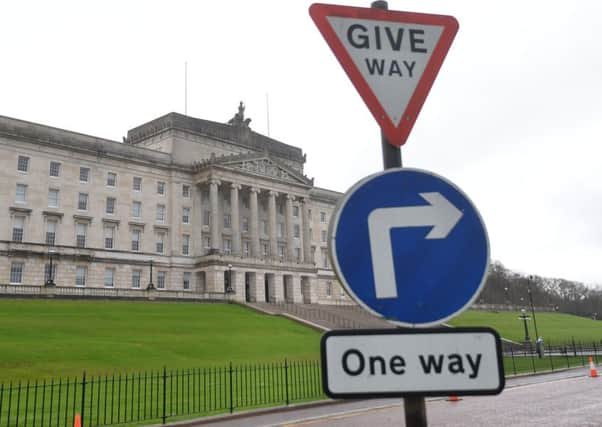Sam McBride: Public mood - and personal cash - will push MLAs towards a deal


The manner of Sinn Fein’s sudden decision to collapse devolution and the scale of nationalist discontent with how that party has approached devolution in recent years, has made many politicians, staff and journalists bleakly assume that Stormont as we have known it will struggle to return quickly.
It would certainly be risky for Sinn Fein to collapse devolution over a mammoth list of long-standing grievances - including the refusal of Arlene Foster to stand aside as First Minister - but then rapidly file back into the Executive headed by Mrs Foster with minimal concessions from the DUP to show for its stance.
Advertisement
Hide AdAdvertisement
Hide AdAnd if an already-weakened Arlene Foster sees the DUP lose any ground at all in the election she will be in no position with which to make symbolic concessions - particularly after an election campaign which is likely to be brutal, tribal and ferociously adversarial with Sinn Fein.
Appearing to negotiate away critical issues to core DUP voters would be electoral suicide if it was seen to be as a consequence of ineptitude on her watch which allowed the RHI scheme to spiral out of control.
And yet, for all the gloom among many of those who want to see devolved government survive and evolve, there are two major issues which point towards the major parties finding a way out of the current deadlock.
The first is the lack of a budget and the related crisis in the health service.
Advertisement
Hide AdAdvertisement
Hide AdIf mismanaged, the health service has the potential to be electorally catastrophic for any politician, regardless of their community background.
Already there are exceedingly long waiting lists, frequent problems in accident and emergency units and the threat of GPs resigning en masse.
The DUP and Sinn Fein have between them held the health portfolio for almost six years and would already be facing major questions if the situation deteriorated - particularly because of repeated failures to implement long-overdue reforms. However, if the health service becomes even more damaged as a result of no budget being in place and no minister being in strategic control of the department, there would be enormous public pressure either for the politicians to re-enter the Executive, or for direct rule to be urgently implemented to provide some form of ministerial leadership.
The second imperative pushing politicians towards a deal is money - their own money.
Advertisement
Hide AdAdvertisement
Hide AdThe current Stormont system not only provides local politicians with executive power and patronage but also with what are - relative to Northern Ireland’s size - vast amounts of money.
By my calculations, MLAs, their parties and staff currently receive about £18 million from Stormont being in place. That will slightly reduce as the current 108 MLAs are cut to 90 after March’s election.
And not all of the money ends up with either parties or their members – some is paid to landlords in order to rent party premises, for example.
For some MLAs, who employ close relatives in those offices, the impact of a Stormont collapse would be even more financially significant.
Advertisement
Hide AdAdvertisement
Hide AdBut it is still a massive amount of money on which hundreds of people are financially dependent. Sinn Fein is particularly exposed financially, given that the party takes everything above the ‘average industrial wage’ earned by each of its Stormont workers and redirects that to fund other individuals within the republican movement.
That is not to suggest that MLAs will simply strike a deal for personal gain. Even the most venal of politicians are constrained by their electorates.
But it will be a factor in the minds of many MLAs who face immediate joblessness if Stormont does not return.